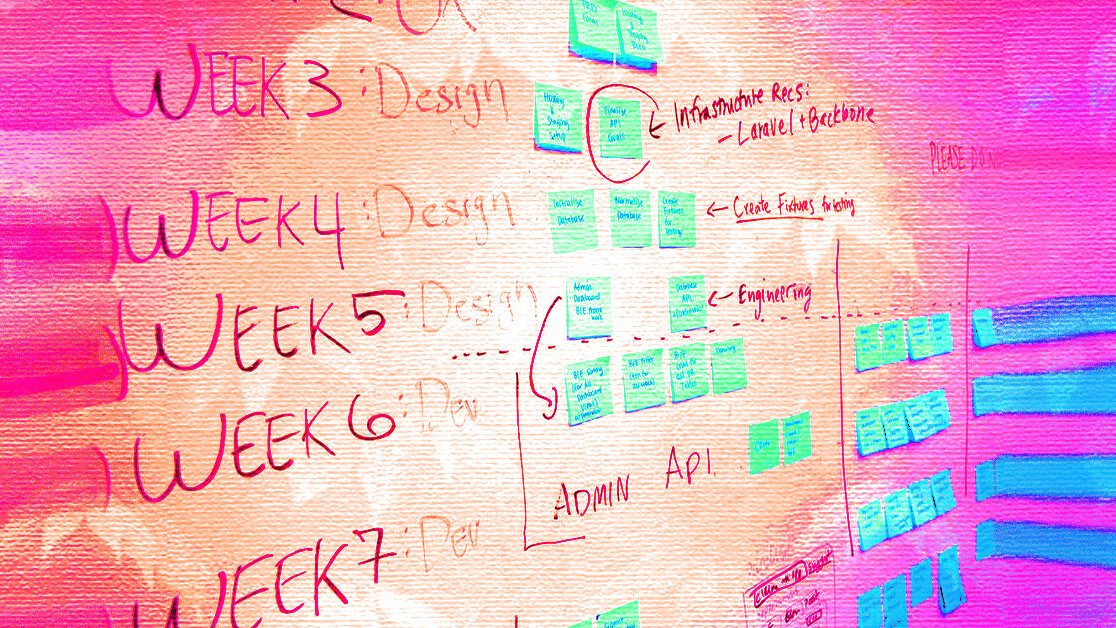
Ask any entrepreneur and they’ll tell you that the first step to success is to start. Yet, so many people still feel trapped in life’s rat race, dreaming of a life where they are in charge. But if so many dream of it, why do so few actually take the leap?
Because it’s a massive shock. I took the leap and ditched my 9-to-5 for the entrepreneurial 24/7. It was far from being easy, but it’s the best decision I ever made — and if you’re contemplating it, I encourage you to go for it.
Here are 2 years condensed into 5 minutes through 5 key lessons I learned transitioning from employee #50,000 at a corporate tech to leading my own tech startup. Hopefully, it’ll help you jumpstart your own journey.
1. The blank canvas: no resources or structure
It’s day 1 of your startup journey and there’s no onboarding plan, no fancy welcome package like the ones you see on your LinkedIn feed. It’s just you and your bold vision to impact the world. You’ll only ever be at this stage once, so use this blank canvas as an opportunity to design the world your way.
Startups lack the luxury of resources. Yet, small budgets and scarce time are a blessing in disguise because they cultivate out-of-the-box thinking. Not being able to afford the fancy painting set at the crafts store forced me to think creatively about my 50 cent paintbrush. In fact, my canvas may not even need that paintbrush. Maybe I can make do with nail polish. Thinking without constraints opens up a whole new world of possibilities.
While creative thinking can make up for a lack of resources, structure is crucial. To help manage my time, I use the Eisenhower matrix, consolidate data as much as possible (don’t make siloed data a challenge tomorrow!), and use smart tooling to work efficiently and create structure.
2. The importance of goodwill
Where corporations need no introduction, startups must carefully build their reputation. That starts with curating awesome experiences. Now of course there’s a myriad of ways to do this, but they don’t all have to be ‘high tech.’
My team and I actually handwrite a thank you note to everyone we work with. There are no big or small fish: every customer is equally valuable.
We’ve also set it up so users can request new features through a feedback page. Listen, learn, and act. Turning users into fans, then ambassadors proved to be a great way of building a strong community and creating goodwill.
3. I surround myself with people I can learn from
Entrepreneurship can be a lonely route, but it doesn’t have to be. There are a wealth of people in the startup world willing to share their knowledge and network. I needed only ask — and I wish I had known that sooner.
[Read: The secret startup weapon no one talks about: Befriending competitors]
I now have 12 mentors and advisors, and engage in regular knowledge-sharing sessions with fellow startups. I’m not afraid to ask for help or reach out for advice. Surrounding myself with people I can learn from is crucial because we can’t do it all by ourselves.
4. Instead of stepping into an existing culture, I had to create my own
I’ve found it all starts with a strong company identity. A startup’s culture is built over time, and involves the personalities of the people on the team. Culture involves core values and a clear mission and vision.
Aligning my startup’s words and actions created the stepping stones of Minite. By communicating the values and mission to all of our stakeholders, I make sure everyone is on the same page.
And the great thing about startups is that each new team member or stakeholder impacts the company culture. It’s a forever fine-tuning process.
5. Corporate life is comfortable and relatively risk-free — entrepreneurship is not
Risks must be calculated and involve careful planning, though no one could have foreseen the impact of COVID-19. Yet, this strange, unfamiliar zone we suddenly found ourselves in was also an innovation catalyst. While some businesses drowned, others pivoted.
At Minite, we went back to the drawing table. We talked to local business owners and students, two majorly impacted groups. Based on their feedback, we recognized a new opportunity and capitalized on it. We’re now going strong even during the pandemic.
Entrepreneurs need to be flexible and ready to adapt to rapidly changing circumstances. It’s easy to be trapped in tunnel vision, but letting go of (often imaginary) constraints cultivates creativity and innovation.
And that’s the great thing about startups: they’re lean. If a corporation is a cruise ship where getting everyone on board takes forever, then a startup is like your 5-year-old nephew on his shiny little bike asking you to go for a ride.
Having been a cruise ship passenger for years, I love the agility of a bike. Life to me is meant to be lived in the fast lane, where I’ll be spending the next decades racing on my shiny new bike, steering in my own direction.
Get the TNW newsletter
Get the most important tech news in your inbox each week.




